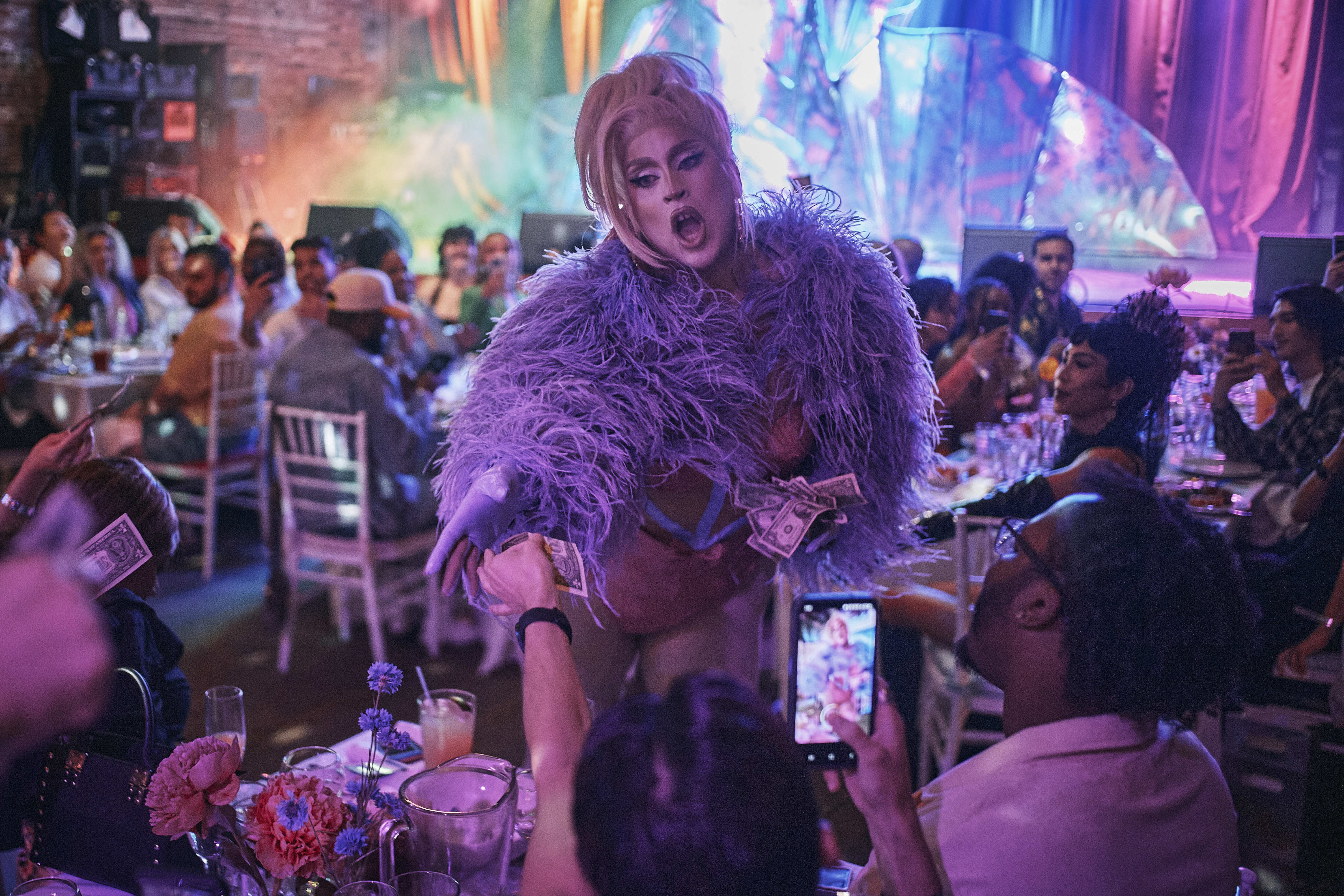|
Over the past year, drag performers have been at the center of a culture war, facing attacks from people around the country. But what about New York City's drag community? WFUV’s David Escobar has the story.
[TRANSCRIPT]
ESCOBAR: If you step into a gay bar in Hell's Kitchen, you wouldn’t think anything has changed. Dancing crowds, lip syncing performers, and generous pours of liquor keep the heart of the city’s queer nightlife beating. But Brooklyn Bridges – a New York City-based drag queen – says there’ve been some palpitations.
BRIDGES: I know from like on a personal level, myself and many of the people I've performed with, there's been times where I'm just like, do I feel like something's going to bad is going to happen tonight? I just have this anxiety kind of gnawing at me that all it takes is one hateful person to come in and do something abhorrent.
ESCOBAR: And Bridges’s feelings aren’t isolated. Her fellow drag queen Lana del Trey says recent hostility towards performers has stoked fears within the broader drag community.
DEL TREY: I definitely think there's an overall eerie sense within all of us. Because, you know, we've always been like side-eyeing, making sure nobody's about to mess with us. But now it's almost like next level because you notice even more people looking at you and not in just a curious way. It's like in a, “Oh, I saw that drag stuff on the news” way.
ESCOBAR: Over the past few months, drag performers like Bridges and del Trey have become the targets of conservative media and politicians. In that time frame, state legislators have introduced more than 30 anti-drag bills to restrict where and who these queens can perform for. In states like Texas and Tennessee, anti-drag bills have become part of a landscape of "drag phobia" infiltrating the country. But Bridges says that drag performers are often at the frontlines of queer resistance.
BRIDGES: There's this like double-edged sword where one drag queens are taking all the attacks. But also there's kind of this expectation that the community can look up to drag queens. Drag queens are incredibly strong, resilient beacons of light and so on one end, while they're receiving all these attacks, they're also the ones speaking out against them.
ESCOBAR: While the recent attacks on drag might feel sudden, Ron Goldberg says that's not the case. He’s the author of the book Boy with the Bullhorn and an early gay rights activist with ACT UP New York. Goldberg says drag phobia is just the latest byproduct of our country's relationship with the LGBTQ community.
GOLDBERG: There's a real desire. This is an authoritarian desire to cut off connections, cut off history, cut off information. And you do that by demonizing. You do that by making people other.
ESCOBAR: But Del Trey attributes the recent attacks on drag to a more pointed problem: the misunderstanding between drag queens and mainstream audiences. For her, helping the general public understand her art is crucial to braking down those barriers.
DEL TREY: Like I get too philosophical because I'm like, drag is kind of like just the performative aspect of life itself. Like, it's like the way that RuPaul says that you're born naked, and the rest is drag. Like kind of everything that we create is drag. But technically, I mean, it would be someone amplifying their gender expression in an artistic way.
ESCOBAR: At it’s core, Goldberg says drag has always been about one thinking: uplifting and affirming queer voices. And he says that the suppression of drag by our current culture war should be a red flag to everyone.
GOLDBERG: We lose our culture. We lose what is uniquely queer. We lose that perspective. It also for so many people, it’s the way they can accumulate power. It takes away a person's ability to express themselves, how they want and how they can and to assert their presence in the world. And that's dangerous, whether it's drag or anything else.
ESCOBAR: For performers like Brooklyn Bridges, recent attacks on drag shows have added stress to livelihood and artform. And while she’s optimistic about the future, she says damage has already been done to her community.
BRIDGES: We're losing a huge outlet of creativity. We are creating this cultural anxiety around what people look like, how people act, how people make art. And it's going to leave a hole in the history of this country that's pretty gray where it could be rather colorful.
|


